Mental math practice Worksheets for Ages 5-6
10 filtered results
-
From - To
Unlock your child's mathematical potential with our engaging Mental Math Practice Worksheets designed for ages 5-6. These worksheets provide fun and interactive activities that help young learners develop essential mental math skills, enhancing their ability to add, subtract, and solve simple problems without relying on calculators or written work. Tailored to align with early learning standards, our resources foster critical thinking and boost confidence in math. With colorful graphics and easy-to-follow instructions, children will enjoy mastering numbers through playful exercises. Encourage your little mathematician today and set the foundation for a lifelong love of math through our carefully crafted worksheets!
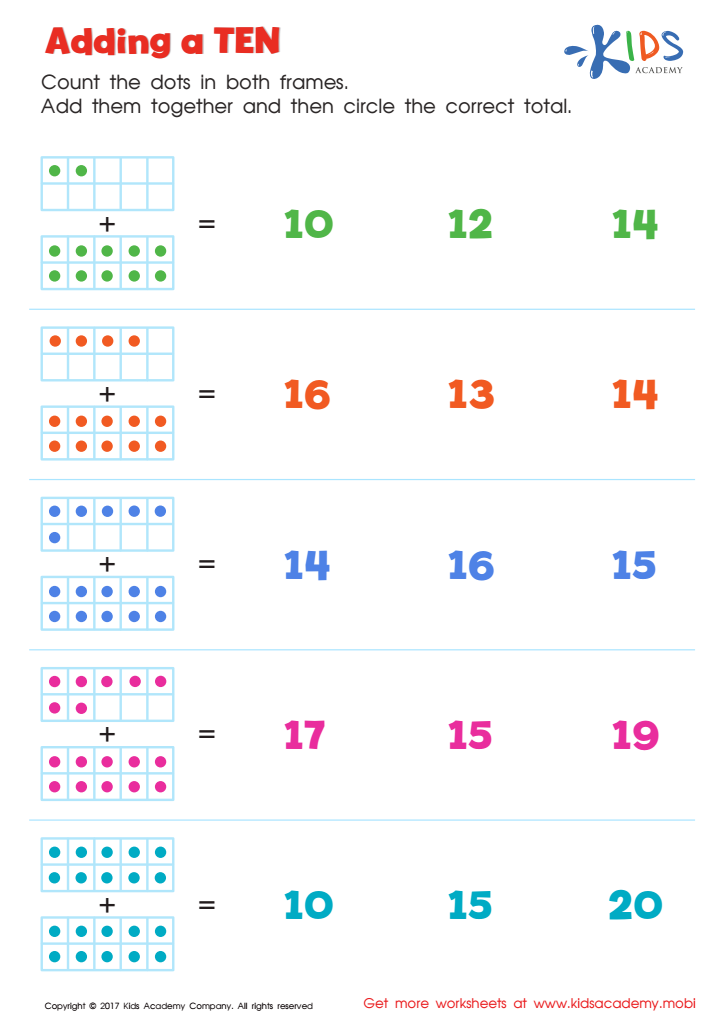

Adding a Ten Worksheet


7 Continents and 7 Seas Worksheet
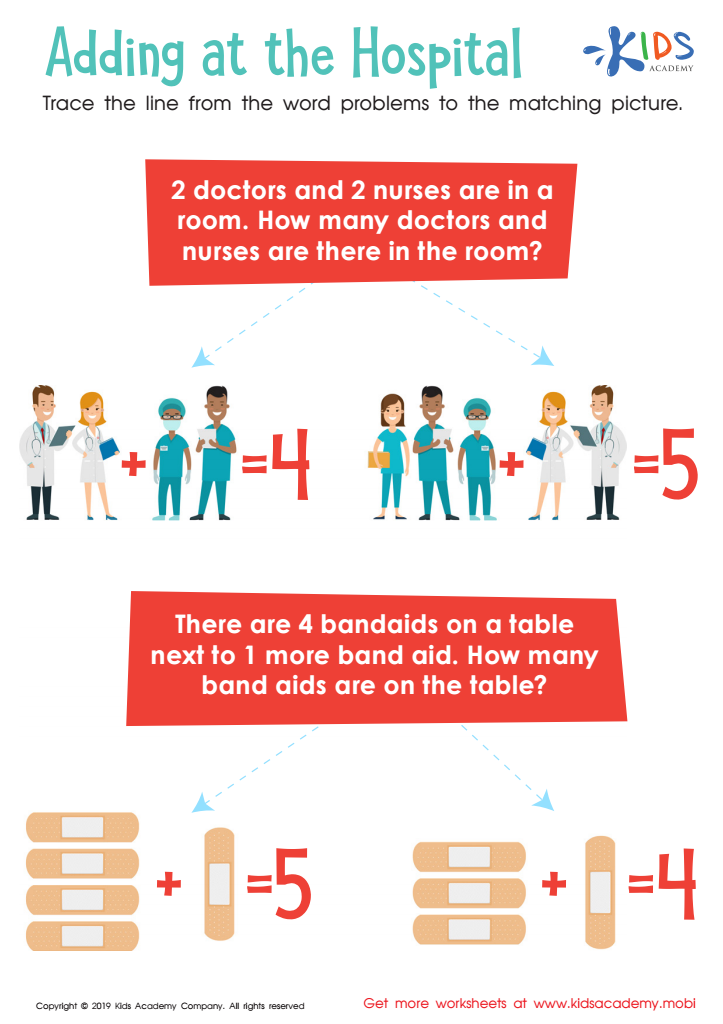

Adding at the Hospital Worksheet


Tricky Problems Worksheet: Part 2
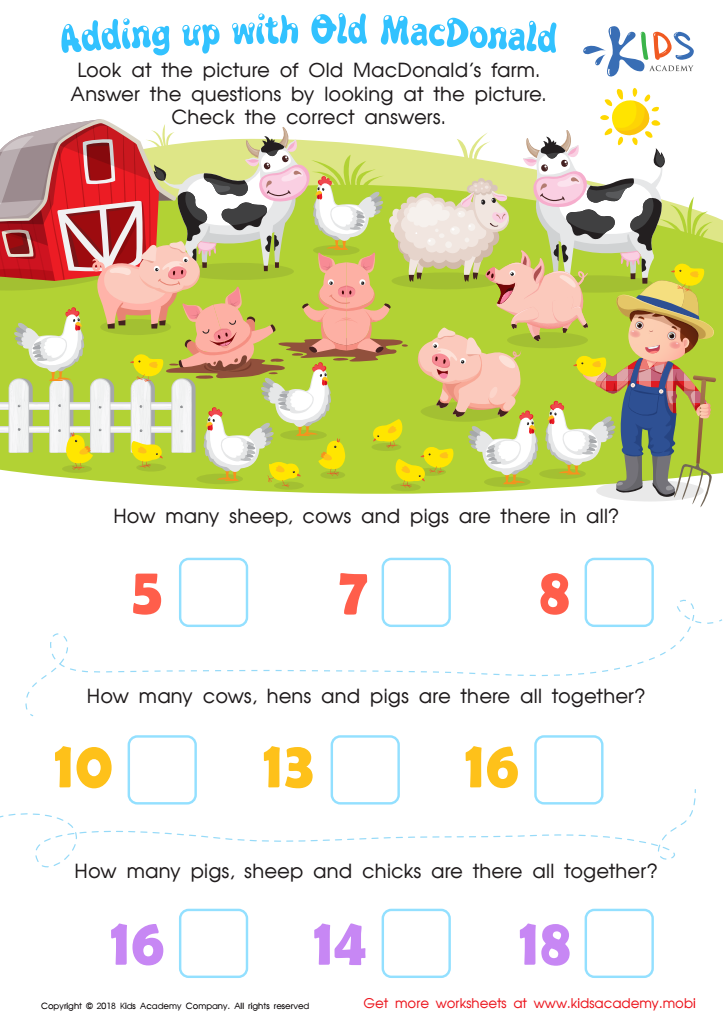

Adding Up with Old MacDonald Worksheet
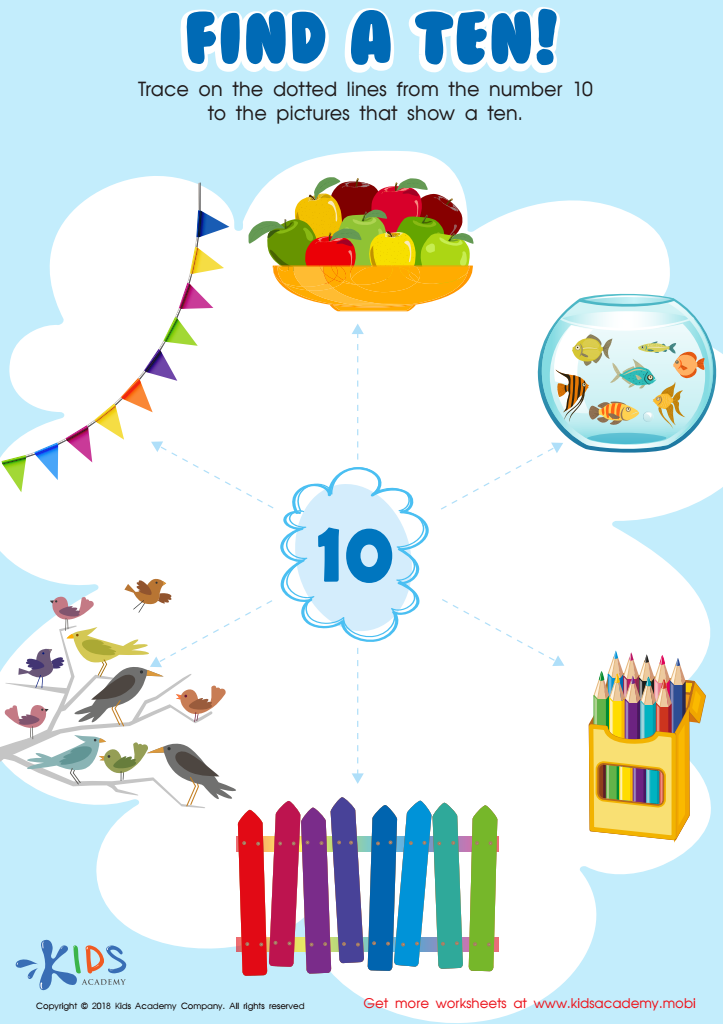

Kindergarten Math Worksheet: Find a Ten
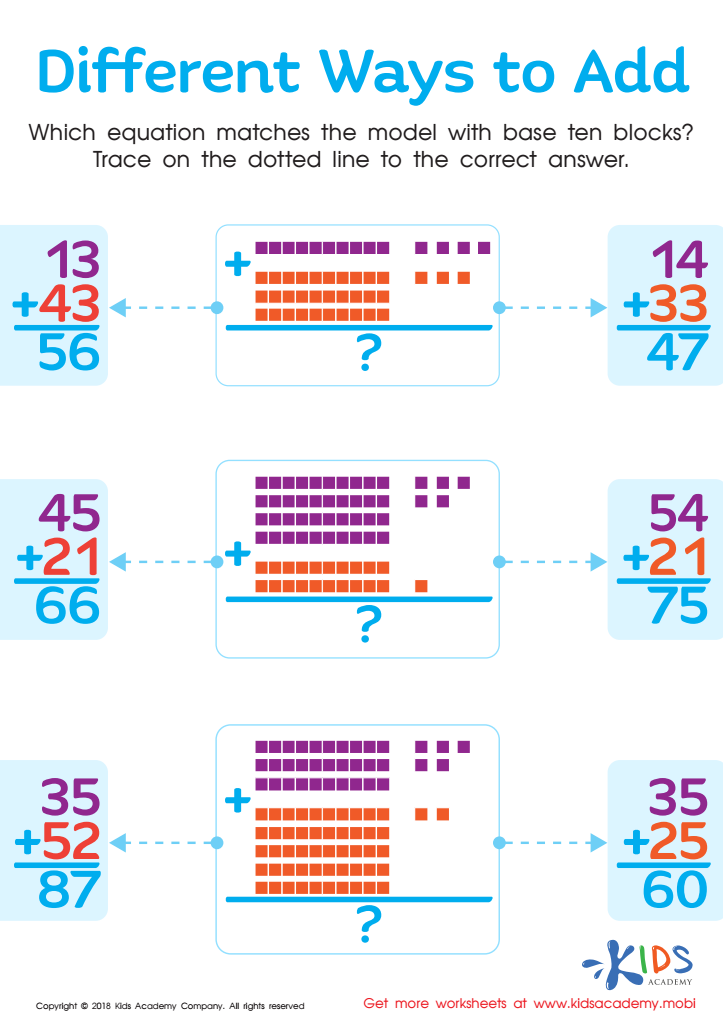

Different Ways to Add Worksheet
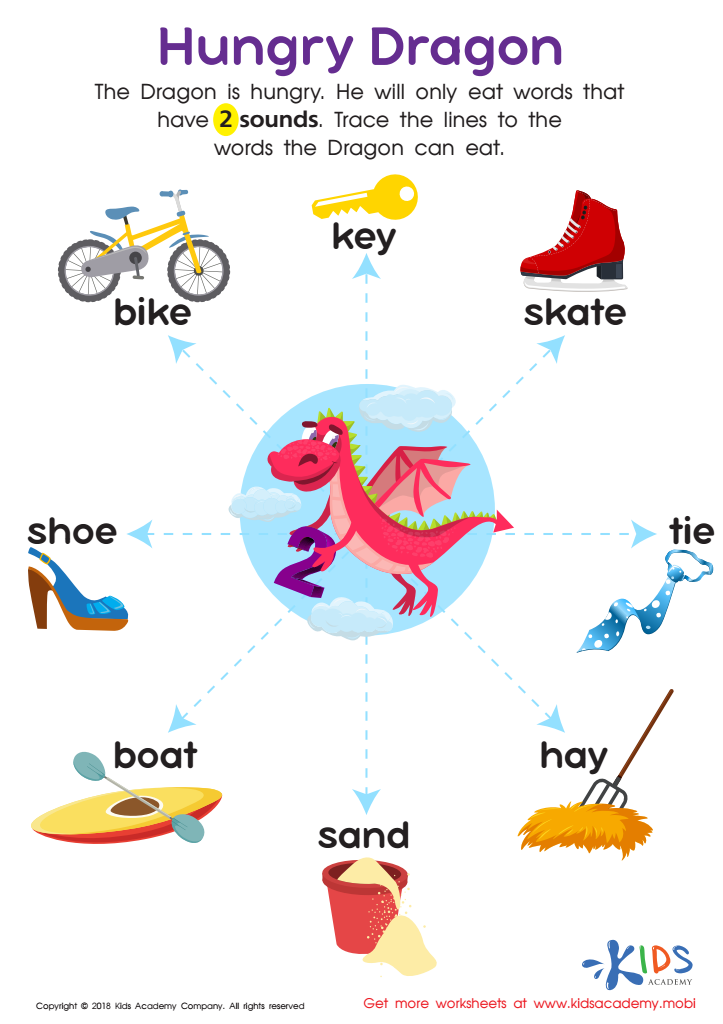

Hungry Dragon Worksheet
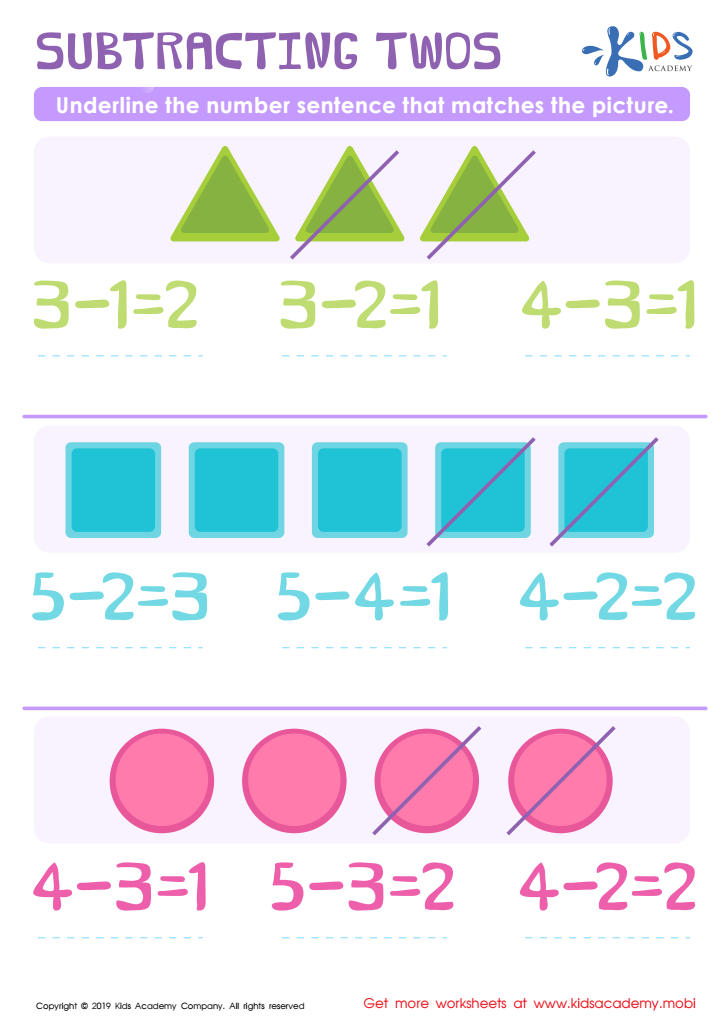

Subtracting Twos Worksheet
Mental math practice for ages 5-6 is vital as it lays the foundation for early numeracy skills. At this stage, children's cognitive abilities are rapidly developing, making it an ideal time to introduce simple mathematical concepts. Engaging in mental math helps in enhancing children’s problem-solving skills and developing their ability to think critically and independently.
Parents and teachers should care about mental math because it boosts confidence. When young learners can manipulate numbers in their minds, they gain a sense of achievement that encourages them to explore mathematics further. Moreover, it cultivates fluency in math, allowing students to perform calculations quickly and efficiently.
Additionally, mental math fosters number sense, which is crucial for later mathematical understanding. This practice encourages children to visualize numbers, recognize patterns, and make connections between concepts, which are all essential skills.
Furthermore, mental math can be seamlessly integrated into daily activities, promoting a fun and engaging approach to learning. By making math a part of everyday life, parents and teachers can help demystify the subject, transforming it into an enjoyable and enriching experience. Overall, investing time in mental math for young children is a crucial step towards developing a positive attitude towards mathematics in the long-term.

 Assign to My Students
Assign to My Students

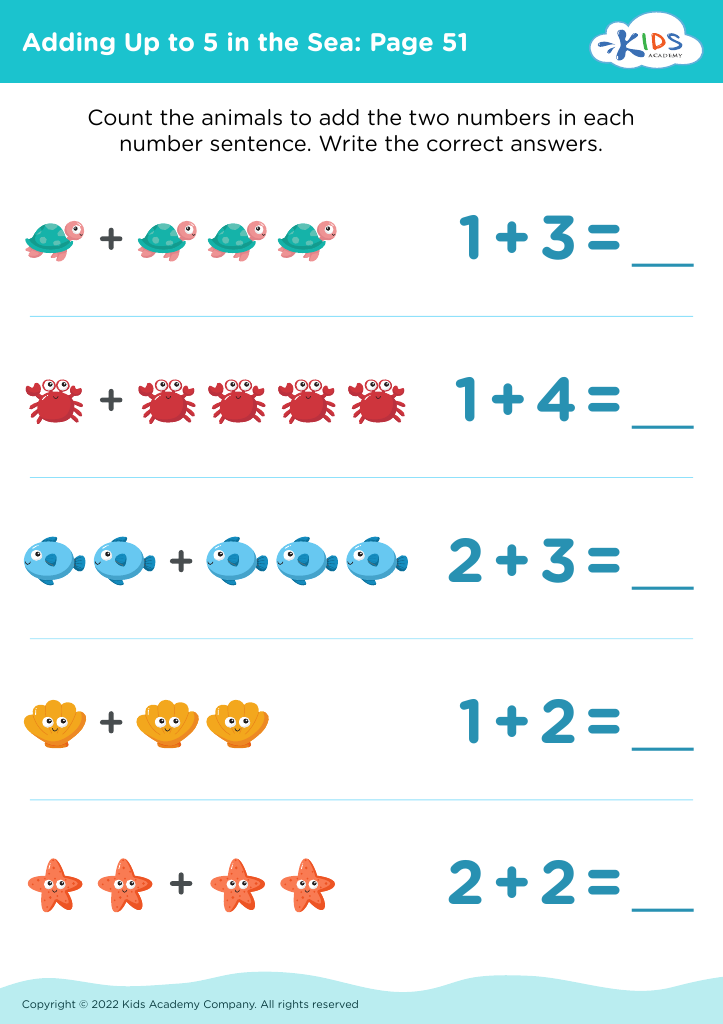




%20(1).jpg)














